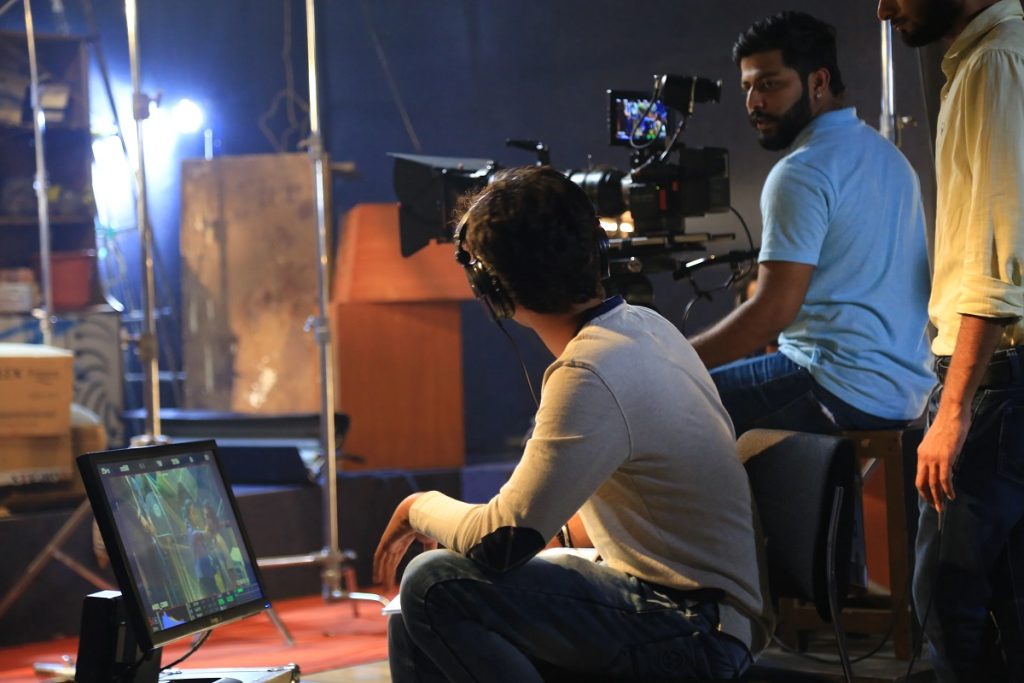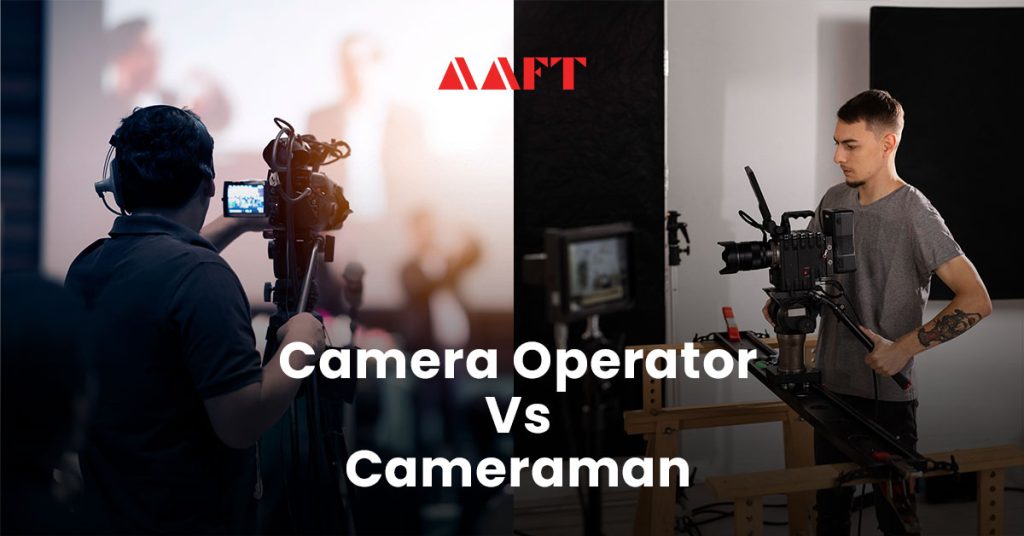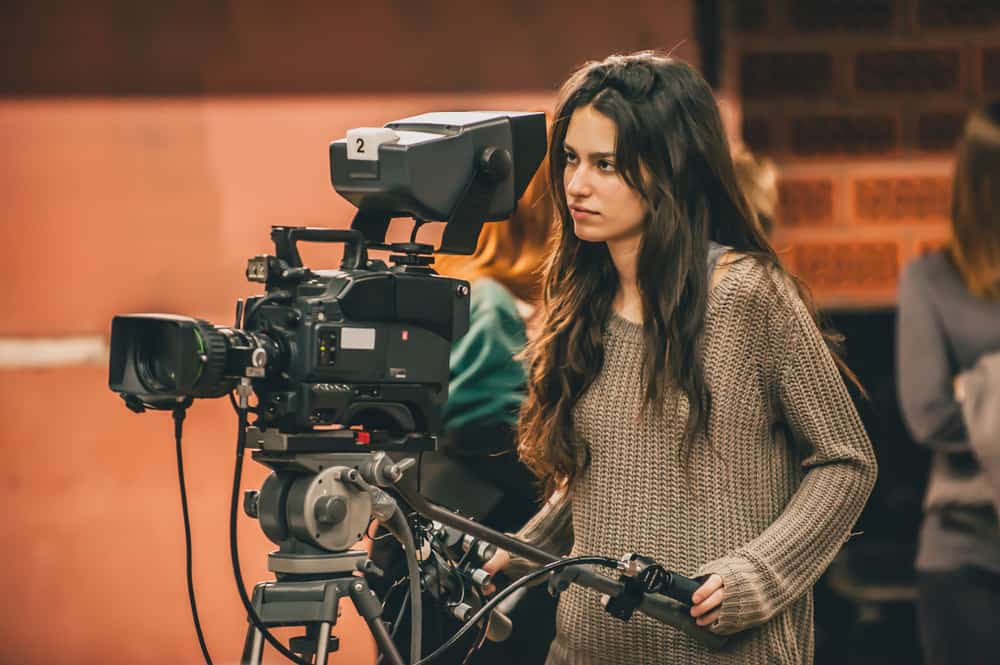Camera Operator Vs. Cameraman: What’s the Difference?
This blog post aims to provide the key difference between a camera operator and a cameraman, their responsibilities, and required skills, and offer advice for those looking to enter this dynamic field.
In the world of filmmaking and video production, the roles of camera operator and cameraman are often used frequently in the film and video production industries, they have different meanings. When picking a cinematography role, candidates are unaware of this reality which role do they have to pick in the future?
Who is a Cameraman?
Many people think a Cameraman is a person with a camera in his hand. Alright, a
cameraman is the one who is also known as a “cinematographer.” A cameraman is directly involved with the film director in planning shots, lighting the set according to the scenes, and pressing the button to record. So, a camera operator sets up everything and rehearses the shots before the cameraman presses the record button. That’s what a cameraman does on the set or during a film or music video shoot.
Read Also: How to Make a Documentary Film: A Step-by-Step Guide
It is one of the most unknown facts among the aspirants when it comes to choosing the role in the cinematography section of work. It is not just one confusion we are talking about, but earlier, we talked about another example of an unknown fact through our blog: Filmmaker vs. Film Director.
Responsibilities of a Cameraman:
- Operating the camera during shooting.
- Assisting with camera setup and equipment maintenance.
- Collaborating with the director and camera team.
- May also be responsible for lighting and other technical aspects.
Do you want free career counseling?
Ignite Your Ambitions- Seize the Opportunity for a Free Career Counseling Session.
- 30+ Years in Education
- 250+ Faculties
- 30K+ Alumni Network
- 10th in World Ranking
- 1000+ Celebrity
- 120+ Countries Students Enrolled
Read Also: 7 Tips to Write an Engaging Screenplay
Key Differences:
- Cameramen have a broader range of responsibilities beyond operating the camera.
- They may assist with lighting, equipment setup, and other technical aspects.
- Cameramen often work in news broadcasting and documentary filmmaking.
Skills of a Cameraman:
- Proficiency in operating various camera types and equipment.
- Versatility in handling technical aspects of production.
- Strong teamwork and communication skills.
- Adaptability to various filming environments.
Read Also: Everything You Need to Know About Making A Short Film
What does a Camera Operator do?
As we know the difference between an AD and a Film Director, and “Camera Rolling” and “Action!” An AD (assistant director) works on the film/music video/daily soap set to set up the frame and the actors’ positions. The camera operator does the same thing; he helps in rehearsing the frame and position that will be captured by the camera. We can say that it is one of the crucial roles in the filmmaking process. Generally, a camera operator handles the camera equipment and also deals with gaffers to set up the lights on the film set.

Key Differences:
- Camera operators focus primarily on operating the camera.
- They work closely with the director of photography to achieve the desired shots.
- Often, camera operators are responsible for camera movement and framing.
Responsibilities of a Camera Operator:
- Setting up and configuring camera equipment.
- Operating the camera during shooting.
- Collaborating with the director and director of photography to capture the desired shots.
- Ensuring proper camera focus, exposure, and composition.
Skills of a Camera Operator:
Read Also: Unforgettable Scenes that Define the Magic of Indian Cinema
- Proficiency in operating various camera types and equipment.
- Knowledge of shot composition and framing.
- Strong communication skills for collaboration with the film crew.
Conclusion
Cinematographers, or cameramen, are in charge of setting up shots, directing lighting, and capturing video. To realize the director’s vision, they work closely with the directors. In India, legends like Santosh Sivan and Ravi K. Chandran have made significant contributions as renowned cameramen. On the other hand, camera operators primarily handle the technical aspects of operating the camera, including framing and movement. They work closely with directors of photography to achieve the desired shots. Proficient camera operators such as Rajiv Menon and Ravi Varman have made a lasting impression on the Indian film industry.
Related Blogs
Read Also: Why Traditional Ads Still Capture Our Attention
Do you want free career counseling?
Ignite Your Ambitions- Seize the Opportunity for a Free Career Counseling Session.Q: Who is a Cameraman?
A cameraman, also known as a camera person, plays a broader role in the film crew. They are responsible for operating the camera but are often involved in other aspects of the production process as well.
Q: Who is a Camera Operator?
A camera operator is a skilled professional responsible for capturing the visual elements of a film or video production. They operate the camera equipment and work closely with the director of photography to bring the director’s vision to life.
Q: What is the difference between a camera operator and a cameraman?
The main difference between a camera operator and a cameraman is that the camera operator is responsible for the technical aspects of operating the camera, while the cameraman is responsible for the creative aspects of shooting the video.
Q: Which position is more important camera operator or cameraman?
Both positions are important, and the success of a film or video project depends on the teamwork of the entire crew. However, the cameraman is often considered to be the more important position, as they are responsible for the overall look and feel of the video.
Q: What are the job prospects for camera operators and cameramen?
The job prospects for camera operators and cameramen are expected to grow much faster than average over the next decade. This growth is due to the increasing demand for video content in a variety of industries, such as film, television, and advertising.

Aaditya Kanchan is a skilled Content Writer and Digital Marketer with experience of 5+ years and a focus on diverse subjects and content like Journalism, Digital Marketing, Law and sports etc. He also has a special interest in photography, videography, and retention marketing. Aaditya writes in simple language where complex information can be delivered to the audience in a creative way.







